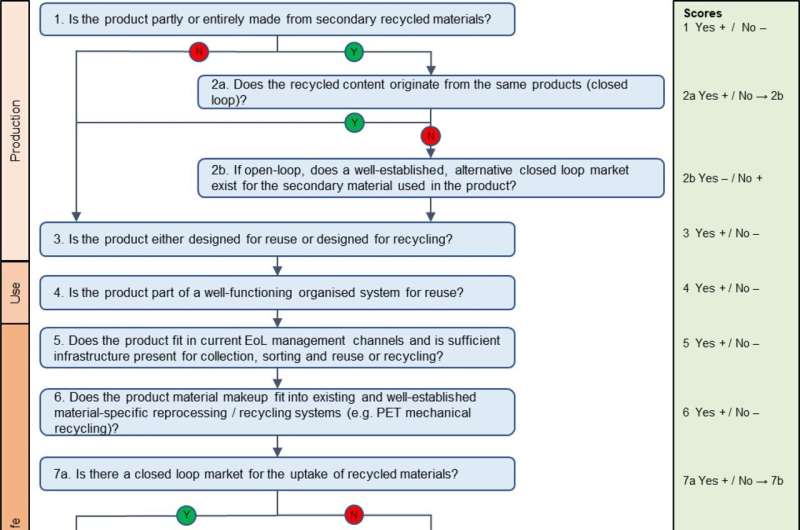Plastics circularity needs to become meaningful, inclusive, and practical, says study

In a new paper published today in Waste Management journal, four scientists from Brunel University London, Politecnico di Milano, University of Southern Denmark and Wageningen University & Research remind us that circularity is not necessarily synonymous with sustainability. Therefore, striving to achieve circularity will not always guarantee a sustainable outcome.
Achieving higher circularity of packaging materials, components, and products is now a significant trajectory taken by politicians and businesses to curb the negative environmental impacts caused by packaging life cycles. Circularity has become an established concept in the public debate but still remains a broad notion that needs a precise definition, that goes beyond the use of metrics and indicators that are not fit for purpose or easy to measure such as collection rates, recycling rates, recycled content, biobased content, and so on.
Circularity measured with such indicators fails to capture system realities or broader effects, including potential rebound effects that may negate or even overturn environmental benefits.
As an example of a meaningful and practical approach, the four researchers Ciprian Cimpan, Eleni Iacovidou, Lucia Rigamonti and Eggo U. Thoden van Velzen propose a product-centric circularity scorecard that captures aspects likely to demonstrate a product’s environmental sustainability. It is based on seven simple questions covering the life cycle of a product: production, use and end-of-life. This “common sense” approach resembles the waste hierarchy with a simple priority order that holds true in most cases.
“Current actions aiming at achieving circularity may be overly focused on superficial effects and losing sight of true circular economy goals,” the four researchers argue.
“Our aim is to trigger a scientific discussion on how to best combine scientific knowledge and research on the flows of materials, components and products through society to achieve the broader objective of sustainability, while keeping up with the timelines imposed by the pace of business and policy decisions. That is why we are making a plea for meaningful circularity goals, to avoid that business or policy decisions involuntarily contribute to cementing policy and infrastructure that do not contribute to true sustainability,” they conclude.
In a context where the European Commission is proposing to turn the Packaging & Packaging Waste Directive into a Regulation that would be directly applicable in all EU Member States, it becomes of paramount importance that we do not lose sight of actual circular economy goals.
In cases where Member States have initiated new laws on packaging waste, and where the business community is committing to ambitious targets to increase the circularity of their products a meaningful, inclusive and practical circularity that promotes sustainability is crucial.>
More information:
Ciprian Cimpan et al, Keep circularity meaningful, inclusive and practical: A view into the plastics value chain, Waste Management (2023). DOI: 10.1016/j.wasman.2023.04.049
Citation:
Plastics circularity needs to become meaningful, inclusive, and practical, says study (2023, May 30)
retrieved 30 May 2023
from https://phys.org/news/2023-05-plastics-circularity-meaningful-inclusive.html
This document is subject to copyright. Apart from any fair dealing for the purpose of private study or research, no
part may be reproduced without the written permission. The content is provided for information purposes only.
For all the latest Science News Click Here
For the latest news and updates, follow us on Google News.

